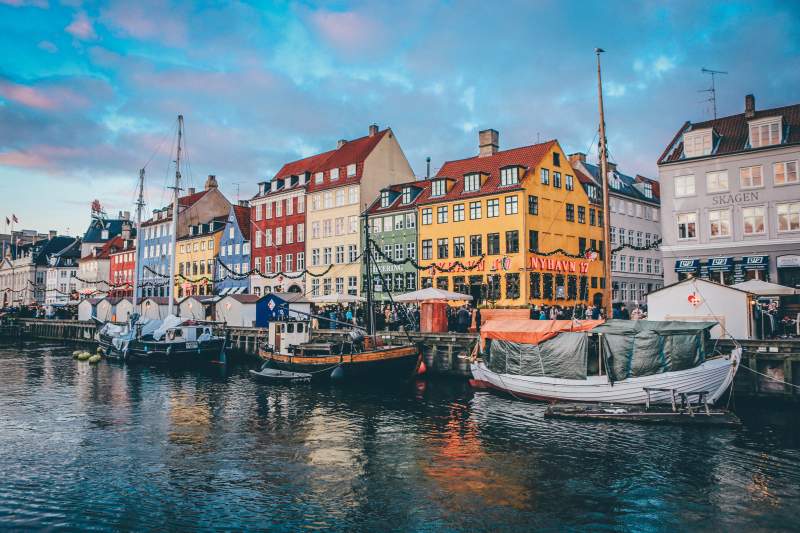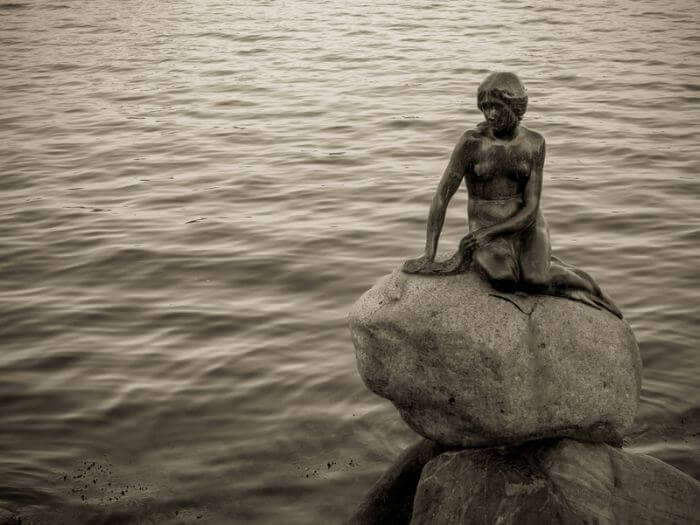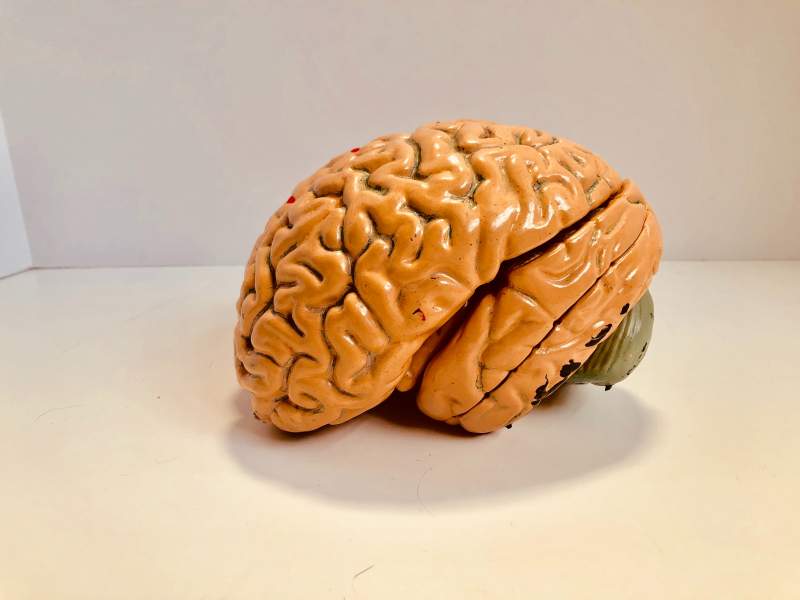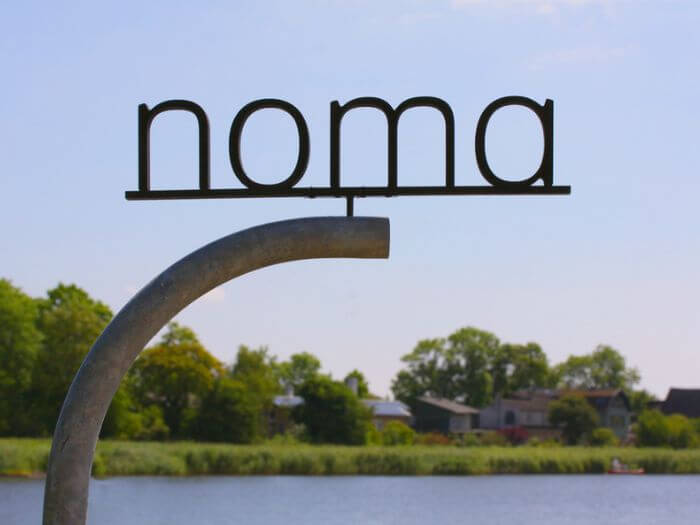Why learn Danish? Learning Danish will enrich your life in ways you may never had thought of, and you get to enjoy your progress every step of the way.
Admittedly, with around 6 million speakers, Danish is not the biggest language in the world. But trust me, there are lots of reasons for learning Danish, as you will see in this post.
The language itself can sound a bit unusual to newcomers, but this is in part due to the fact that it has a richness of sounds that you will find in very few other languages.
So once you have crossed that bridge – and with a little effort that isn’t too hard to do – the process can be a hugely enjoyable journey. Let's find out then – why learn Danish?
Pro Tip
By the way, if you want to learn Danish fast and have fun, my top recommendation is Danish Uncovered which teaches you through StoryLearning®.
With Danish Uncovered you’ll use my unique StoryLearning® method to learn Danish through story…not rules. It’s as fun as it is effective. If you’re ready to get started, click here for a 7-day FREE trial.
By the way, if you prefer watching videos to reading, hit play on the video at the top of this page. Otherwise, keep scrolling to read the article and find out: why learn Danish?
Table of Contents
1. Danish Opens Most Of Scandinavia To You

If you take the time to learn Danish, you’ll find yourself able to communicate not only with the Danes, but with most of Scandinavia.
This is true for Sweden and Norway, while Finland, linguistically, is a whole different kettle of fish. With this in mind, you have just tripled the number of people you can talk to and get to know.
And you can reap these benefits whether your interest is based on commercial, social or even historical and cultural topics.
The Danes have a bit of a reputation for being a slightly reserved bunch. But trust me, in their hearts they love to make friends. And you will find them eager to help you master their language.
2. The Little Mermaid, And Other Wonders Of The World

Would you voluntarily read Shakespeare in another language? Not really, right?
Even the best translator (and there are capable ones out there) leaves a mark on the text in question, in turn leaving just a tiny bit of the writer’s voice out. Often, this is not a problem.
But if you want the full flavour of Hans Christian Andersen, and his wonderful fairy tales, (or other Danish books) you had best pick up that Danish course and get to work! You will be rewarded.
It will become obvious to you that this 19th-century writer and poet displayed a subtle and gentle tone in his works.
Plus, they always include an extra layer of meaning, an extra gift for the avid reader. As had been said the fairy tales were written for grown-ups, yet told for children.
3. Vikings, Ahoy

Through Danish, you can lock on to the rich cultural heritage of Northern Europe. And there is much more to it than the stereotypical brutal vikings, ravaging and plundering much of Britain, as well as other European countries.
Certainly, the people of those times were as least as eager to do trade or manufacture tools as plundering monasteries, as they are depicted in the more action-packed stories.
Norse mythology also bear witness to a rich religious life. Learning Danish will open you to a world of thrilling stories, horrific beasts, incredible competitions and cunning demi-gods.
Denmark has one of the oldest monarchies in the world. The jury is still out on that one, but the first Danish king of the current house dates back more than a thousand years. He, Gorm the Old, christened the Danes (officially) and marked the end of the Viking era.
If this reason piques your curiosity, check out my post on Danish language history.
4. Learning A New Language Is Effective Exercise For Your Brain

Researchers from all around the world have found solid evidence that the very process of learning a new language keeps your brain in peak condition.
This will come in handy in so many situations in your life, that it can hardly be overestimated. In fact, it's impossible to imagine any situation at all, where brain power is not of the essence.
Learning a new language will activate parts of you that we, let’s face it, don't necessarily overuse on a daily basis. The challenges that the process presents keep your brain alert, and enable you to have a broader perspective on a variety of experiences.
If you're an English speaker, you're bound to recognise many of the structural aspects of Danish grammar and syntax. At the same time your brain needs to follow new pattens of thought, maintaining its plasticity and ability to adapt.
And to be sure, it looks killer on your resumé!
5. The Arctic Region

This particular corner of the world has long been out of focus for the general population. Not so anymore.
Without dwelling too much on complicated geopolitics, it’s safe to say that this region has new entered international discussions big time, as you have probably noticed, and rightfully so.
With a knowledge of Danish, you have a very good entry point for such discussions. At the heart of it lies, of course, Greenland, a huge island in the Arctic region.
Greenland is – along with the Faroe Islands – a part of the Danish so-called Rigsfælleskab, meaning they are autonomous parts of the Kingdom Of Denmark.
It also means that Greenland’s foreign policy is decided in Denmark, in The Danish language. To know more, take a look at my post on Danish-speaking countries.
6. Fine Danish Dining

If you're anything like me, you do enjoy the occasional plateful of delicious and refined food.
In 2022, a Danish restaurant was voted no.1 in the prestigious The World’s best 50 restaurants, and the year before, restaurants in Copenhagen took up both the first and second spot on that same list.
What sets these places apart, is the emphasis on locally grown and bred raw materials. One of them even named themselves Noma – short for Nordisk Mad (Nordic Food).
Mind you, on such occasions, having learned Danish will really come in handy, potentially save your live.
That way, you will know that when you order en søpølses kønsdele, et helt andehoved med tungen som ske og fermenteret egern, you should prepare to be served genitals of sea cucumber, a complete duck’s head with the tongue used as spoon, and fermented squirrel.
And yes, those are actual examples from the menu! Going? Be sure to make your reservations early, it can take several months to get a vacant table.
7. Philosophy, Now

If you have ever, even a little, dabbled in philosophy, psychology, Christianity, or just the existential human condition, chances are you have come across the name Søren Kierkegaard (yes, the ”ø” is a Danish speciality – a contraction of an ”o” and an ”e”).
Strolling through the streets of Copenhagen, this peculiar looking figure would pen down some of the most subtle thoughts about human life.
This is the reason why some people as far away as Japan learn Danish; with the sole purpose of studying this intriguing writer in the original language.
8. Great Educational Opportunities In Denmark

Danes take great pride in foreign students. It appears to be flattering to have people from other exciting countries visit and study here, showing an interest in Danish culture and language.
There are extensive, well-organised foreign exchange programmes, at Danish universities and business schools.
This education is free, and if you meet certain criteria, you might even be eligible for SU, the state’s education support – a small payment for expenses each month. You will also find systems and help for accommodation, contact with the authorities and the like.
Another possibility are the so-called højskoler, a Danish speciality. These can be costly, and function as schools where you live, going into depth with your fellow students, often as more social, perhaps light-hearted studies of things like art, literature, or music.
These schools are free of tests and exams, and they are meant to be based on interest, rather than career.
9. Danish Film And Television

Are you also struggling to read subtitles? Do voiceovers often come across as a bit off? Well, you're not alone. Watching films or TV series is most enjoyable when you understand, off the bat, what’s happening on the screen.
Recent years have seen a boom in Danish movies and television. Often seen as a part of a wave of Nordic Noir, these have been met with much critical acclaim, all over the world.
Usually centered around crime and murder, the works have a special, dark ambience. Examples to take note of would be “Those Who Kill”, “The Chestnut Man” and the downright chilling “Kingdom”.
10. Danish Sense Of Humour

As any translator will tell you, humour and jokes are notoriously difficult to translate. Much is in the words, or based on cultural references, and this simply does not carry very well.
To truly appreciate humour, a strong knowledge of the language is definitely a huge advantage.
That said, Danes and Brits actually share a fair bit in this regard. There is a reason why shows like “Blackadder”, “Fawlty Towers”, and “Keeping Up Appearances” are very popular in Denmark, with reruns frequently aired.
Danish humour might be less based on wit than the English, so you have a good chance of coming to an appreciation of it. At any rate, Danes love to use humour as a relief from a stressful or unpleasant situation.
This again is connected to the Danish concept of Hygge, which is difficult explain precisely, but involves a pleasant, social occasion. Which leads me to the final good reason learn Danish….
11. A Piece Of Happiness

It would probably be a bit of a stretch to say that happiness lies within a language. It doesn’t.
But it is noteworthy how the Danes are continuously ranked amongst the happiest of people on the planet.
Mind you, they speak what comedian John Cleese once called ”not a language, but a disease”. But what does he know?
FAQs About Why Learn Danish
Is it worth learning Danish?
Although spoken only by around 6 million people, it's definitely worth learning Danish.
For one thing, learning Danish means you'll also be able to understand Swedish and Norwegian, particularly in writing but also the spoken language.
You'll also be able to pick these languages up quickly if you ever want to learn them more thoroughly thanks to your knowledge of Danish.
Also, Danish is among the “easiest” languages for native English speakers to pick up. The grammar and sentence structure are fairly similar and there's lots of shared vocabulary.
Learning Danish also gives you greater access to Danish culture, whether that be Nordic Noir TV series or the works of the philosopher Kierkegaard. As good as translations can be, it's never quite the same as listening to or reading the original version.
What is special about the Danish language?
What sets Danish apart, especially from its sister Scandinavian languages, Swedish and Norwegian, is its pronunciation. Here are some features of Danish that can make it tricky to pronounce and understand.
Soft Consonants: Danish is known for its “soft” consonants. For example, Danes pronounce the “d” softly or almost not at all, particularly in words like mad (food), where it sounds more like “ma.”
Stød: Danish features a glottal stop called stød, which is a slight constriction of the vocal cords that can change the meaning of words. You distinguish the words hun (she) and hund (dog) thanks to the stød.
Vowel Reduction: Danish has many vowel sounds. And Danes don't pronounce these sounds clearly in casual conversation. So it can be hard for Danish learners and even speakers of mutually intelligible languages like Norwegian and Swedish to catch what they say.
Should I learn German or Danish?
Whether you should learn German or Danish depends on a few factors.
Are you more likely to need to speak to German speakers or Danish speakers? Are you planning to move to Germany or Denmark? In those cases, it would be better to learn the language of the respective country.
Otherwise, German is much more widely spoken than Danish, so that could be a factor in your choice. German has around 100 million native speakers worldwide, whereas Danish only has around 6 million.
Another issue to bear in mind is that Danish is a bit easier to learn than German if you're a native English speaker. Danish only has two grammatical genders compared to German's three. And Danish grammar is simpler than German grammar.
Learning Danish means you'll be able to understand and quickly learn the other Scandinavian languages, Swedish and Norwegian. So you get three languages for the price of one!
No matter which language you choose, learning German or Danish will open doors and enrich your life.
Should I learn Danish?
Are you interested in Danish culture or travelling to or living in Denmark (or Greenland or The Faroe Islands)? No matter what language you learn, you'll need a strong why to stay motivated through the learning process.
If you're curious in any way about Danish language or culture then you “should” follow that curiosity and learn it.
Otherwise, you may be motivated to learn Danish because it's one of the easiest languages for native English speakers to learn. If you've never learned a language before, it could be a good place to start due to its similarities with English.
And learning Danish means that you'll also be able to understand Swedish and Norwegian and learn these languages quickly if you want to add them to your repertoire.
Why Learn Danish?

So, why learn Danish? You've just discovered 11 reasons to learn Danish. But maybe the case is simply, Danish is fun!
Nowadays there are many exciting materials for language learning available, including for Danish.
If you're wondering how to learn Danish, make sure you check out the StoryLearning method where you learn languages through stories, not rules.
To get started, why not check out my short stories in Danish book which features eight page-turning tales suitable for high beginners.

Olly Richards
Creator of the StoryLearning® Method
Olly Richards is a renowned polyglot and language learning expert with over 15 years of experience teaching millions through his innovative StoryLearning® method. He is the creator of StoryLearning, one of the world's largest language learning blogs with 500,000+ monthly readers.
Olly has authored 30+ language learning books and courses, including the bestselling "Short Stories" series published by Teach Yourself.
When not developing new teaching methods, Richards practices what he preaches—he speaks 8 languages fluently and continues learning new ones through his own methodology.









































